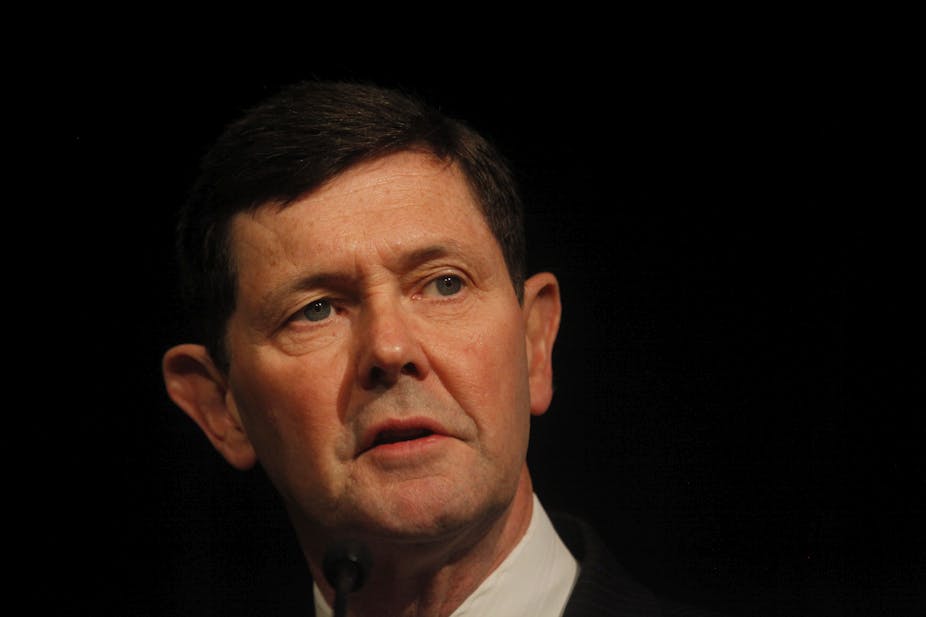Australians have never been so dependent on the not-for-profit sector for social services, and governments – of whatever shade – have never been so dependent on the organisational capacity of NFPs to deliver their policies.
Australia has a higher proportion of human services provided by NFPs than almost any other country, with the sector turning over $100 billion a year – more than the revenue of BHP Billiton (at $66 billion) or Telstra, News Corp and the Commonwealth Bank combined (together, about $80 billion).
Yet it’s only in the past year that Australia has, through formal legislation, defined what is and isn’t a charity – and in the process protecting their right to advocate and speaking to the right of all Australians to free speech (the next best thing to a Bill of Rights, for those who have been campaigning for constitutional reform).
The new Charities Act and the establishment of a regulator – the Australian Charities and Not-for-Profit Commission (ACNC) – were the first significant reforms to the NFP sector in Australia’s history. Why did we have to wait so long for such developments? After all, what happens to the NFP sector matters.
And, as Australia goes to the polls, governments matter a great deal to the NFP sector. Around one third of NFP revenue comes from government. Major policy shifts affect the NFP employees who make up 8% of the Australian workforce, the five million-plus volunteers in the sector and the millions more who receive NFP services.
So what might the future hold? If a Coalition government is elected, it’s not good news for the ACNC.
Labor senator Doug Cameron, the Coalition’s Kevin Andrews and Australian Greens Senator Rachel Siewert last week took part in a National Press Club election forum looking at the NFP sector and, there, Mr Andrews reiterated his position that the ACNC is a “power grab” by government.
The Coalition would, alternatively, establish “a small commission as an educative and training body”, Mr Andrews said. This new body would be attached, initially, to the Australian Taxation Office and would have no regulatory role.
Defending the ACNC, senators Cameron and Siewert said the body would reduce red tape by it leading to process to harmonise laws across the states. They pointed out that the sector had long campaigned for the body and that a recent survey by Net Balance and Pro Bono Australia of more than 1500 NFP sector workers had found that 81% supported the ACNC.
Mr Andrews responded that he had consulted extensively with the sector and he heard from many that the ACNC was just another source of burdensome red tape.
Both senators Cameron and Siewert argued that the language used by Mr Andrews was evidence that the Coalition was adopting the Big Society agenda of UK Prime Minister David Cameron. (It’s been dubbed “Big Society” because, following its implementation, power is said to move away from politicians and to the people.)
They pointed to Andrews’ commitment to find alternative revenue streams for the sector and to “get government out of the way”. Senator Cameron argued that if government “vacates the space” it will leave an unfilled gap in NFP resources.
Mr Andrews rejected comparisons with the Big Society agenda in the UK. However, it is plausible these ideas might diffuse to Australia. Big Society architect Phillip Blond was brought here in mid-2011 and introduced to a Menzies Research Centre forum as a “friend of Australia” by Opposition Leader Tony Abbott.
Blond also briefed senior Liberals and local government officials. In his “Stronger Economy and Stronger Australia” speech to the National Press Club in January last year Mr Abbott invoked four core Big Society tenets: engaging community and for-profit organisations to deliver public services; increased reliance on and advocacy for community volunteerism; reviewing welfare provision arrangements; and managing the budgets and staffing of public schools and hospitals through community boards.
The big question is whether a Coalition government’s commitment to “getting out of the way” will translate into getting out of funding the sector. We’ll have to wait and see whether small government will become a burden or a reprieve for the NFP sector in Australia.

